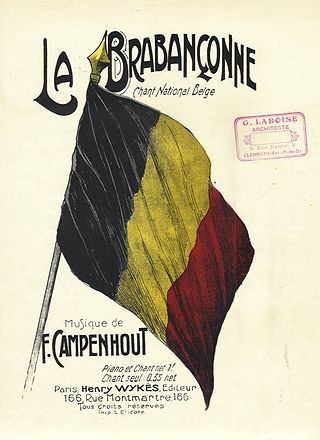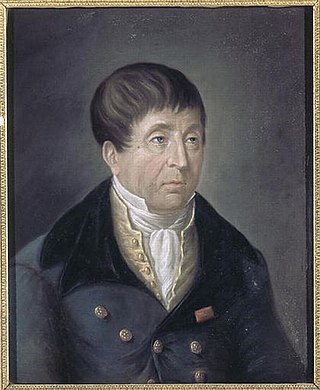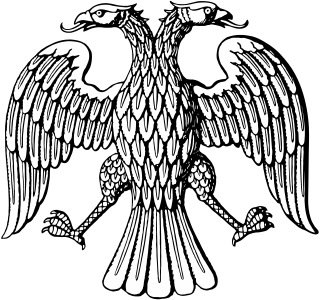| | |
| Type | Newspaper |
|---|---|
| Founded | 1943 |
| Language | French |
| Headquarters | Marseille |
| ISSN | 2131-8387 |
| Website | Official website |
La Marseillaise is a French newspaper established in 1943. [1]
| | |
| Type | Newspaper |
|---|---|
| Founded | 1943 |
| Language | French |
| Headquarters | Marseille |
| ISSN | 2131-8387 |
| Website | Official website |
La Marseillaise is a French newspaper established in 1943. [1]

"La Brabançonne" is the national anthem of Belgium. The originally French title refers to the Duchy of Brabant; the name is usually untranslated in Belgium's other two official languages, Dutch and German.

"La Marseillaise" is the national anthem of France. The song was written in 1792 by Claude Joseph Rouget de Lisle in Strasbourg after the declaration of war by France against Austria, and was originally titled "Chant de guerre pour l'Armée du Rhin".

Claude Joseph Rouget de Lisle, sometimes spelled de l'Isle or de Lile, was a French army officer of the French Revolutionary Wars. Isle is known for writing the words and music of the Chant de guerre pour l'armée du Rhin in 1792, which would later be known as La Marseillaise and become the French national anthem.

The Worker's Marseillaise is a Russian revolutionary song named after La Marseillaise. It is based on a poem of Pyotr Lavrov, first published on 1 July 1875 in London as A new song. The poem reflects a radical socialist program and calls for the violent destruction of the Russian monarchy. At the end of 1875 or in 1876, this poem began to be sung in Russia to the melody of the last verse of Robert Schumann's song Die beiden grenadiere. Schumann's melody is inspired by the original Marseillaise, but is noticeably different from it. Thus, the melody of the Worker's Marseillaise is only indirectly related to the original Marseillaise, and the lyrics not at all. The song is close to the cruel romance genre, and this influenced its popularity. The name the Worker's Marseillaise has been fixed since the 1890s.

Maréchal, nous voilà ! is a 1941 French song dedicated to Marshal Philippe Pétain. The lyrics were composed by André Montagard; its music was attributed to André Montagard and Charles Courtioux but actually plagiarized from a song composed for the 1933 musical La Margoton du battailon by Polish Jewish composer Kazimierz Oberfeld, who was deported to Auschwitz in 1945, where he was murdered. Although La Marseillaise remained the official national anthem of the state, Maréchal, nous voilà ! was performed in many capacities unofficially as an alternative song for the public, being used as a popular song for events like sports and recreation. However, the song never dispelled the use of "La Marseillaise" as the official anthem, and it remained the main hymn of the Vichy State and had official support among the Vichy government. It had multiple performances during the Vichy France Era, often in a famous variation by André Dassary.

Marseillaise was a French light cruiser of the La Galissonnière class. During the Second World War, she remained with Vichy France.

Samuel Dumoulin is a French former professional road bicycle racer, who rode professionally between 2002 and 2019 for the Jean Delatour, Cofidis and AG2R La Mondiale teams. He now works as a directeur sportif for UCI ProTeam B&B Hotels p/b KTM.

Grand Prix Cycliste La Marseillaise, formerly known as the Grand Prix d'Ouverture La Marseillaise, is a single-day road bicycle race held annually in February around the city of Marseille, France. Since 2005, the race is organized as a 1.1 event on the UCI Europe Tour. It is usually the first race of the European calendar, one day before the stage-race Étoile de Bessèges, which is held in the same region.

Jonathan Hivert is a former French professional road bicycle racer, who last rode for UCI ProTeam B&B Hotels p/b KTM.

Mikaël Cherel is a French former professional road bicycle racer, who competed as a professional from 2007 to 2023.

"Partant pour la Syrie" is a French patriotic song, the music of which was written by Hortense de Beauharnais and the text by Alexandre de Laborde, in or about 1807.

Maxime Bouet is a French former road racing cyclist, who competed as a professional from 2008 to 2023.

Arthur Vichot is a French former professional cyclist, who rode professionally between 2010 and 2020, for the Groupama–FDJ and B&B Hotels–Vital Concept teams. He is the nephew of Frédéric Vichot, who won stages in the Tour de France in 1984 and 1985.
La Marseillaise is a French film of 1938, directed by Jean Renoir. A vast political, social, and military panorama of the French Revolution up to the autumn of 1792, its many episodes range from the life of ordinary working people through the committed bourgeois struggling for change up to those in the upper echelons of society defending the status quo.

Anthony Turgis is a French professional racing cyclist, who currently rides for UCI ProTeam Team TotalEnergies. Professional since 2015, he won the ninth stage of the 2024 Tour de France from a small bunch sprint. Other professional wins of his include the 2019 Grand Prix La Marseillaise, the 2015 Boucles de la Mayenne, the 2016 Classic Loire Atlantique and the 2019 Paris–Chauny. He also finished second in the 2019 Dwars door Vlaanderen and 2022 Milan–San Remo and has competed in eight Grand Tours.

Lilian Calmejane is a French cyclist, who currently rides for UCI WorldTeam Intermarché–Wanty. He is best known for winning stages at the Tour de France in 2017 and the Vuelta a España in 2016.

Aurélien Paret-Peintre is a French cyclist, who currently rides for UCI WorldTeam Decathlon–AG2R La Mondiale. Professional since 2018, he has most notably won the fourth stage of the 2023 Giro d'Italia from the breakaway. His first professional win was the 2021 Grand Prix La Marseillaise. His younger brother Valentin is also a professional cyclist.
"The Women's Marseillaise" was the former Women's Social and Political Union (WSPU) official anthem. It was sung to the tune of La Marseillaise and included words about women's suffrage written by Florence MacAulay. The song was sung by suffragists in both the United Kingdom and the United States.
The 2022 Grand Prix Cycliste de Marseille La Marseillaise was the 43rd edition of the Grand Prix La Marseillaise one-day road cycling race. It was held on 30 January 2022 as a category 1.1 race on the 2022 UCI Europe Tour, and as the first event of the 2022 French Road Cycling Cup.